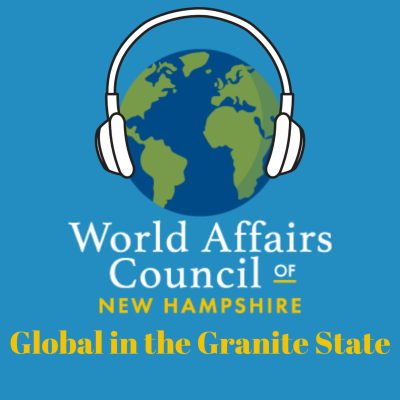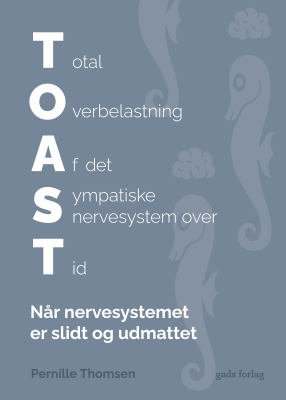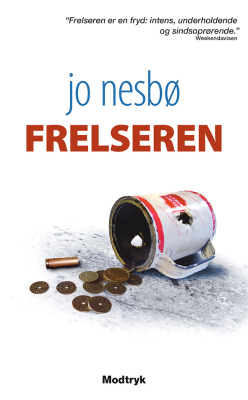
Global in the Granite State
engelsk
Videnskab & teknologi
Begrænset tilbud
2 måneder kun 19 kr.
Derefter 99 kr. / månedOpsig når som helst.
- 20 lydbogstimer pr. måned
- Podcasts kun på Podimo
- Gratis podcasts
Læs mere Global in the Granite State
The Global in the Granite State Podcast is an engaging and informative show that aims to provide the audience with a deeper understanding of important international issues. By featuring experts in the field and individuals with lived experiences, the podcast offers a well-rounded perspective on various global topics.By focusing on breaking down complex issues in an easily understandable way, the Global in the Granite State is particularly valuable for those who are interested in global affairs but may not have formal training or work in foreign policy think tanks. By presenting information in a balanced manner, considering the historical context, policy implications, and future outlook of each topic, the podcast helps listeners grasp the multifaceted nature of global issues.Although the series is centered in New Hampshire, it seeks to provide insights that people from anywhere can benefit from. This approach ensures that listeners from different backgrounds and geographic locations can gain a broader understanding of the world and the forces that shape it.
Alle episoder
87 episoderEpisode 86: Ukraine Four Years On
This month marks four years since Russia launched its full-scale invasion of Ukraine—a conflict that has reshaped global politics, security, and the international order. To reflect on this grim anniversary, Global in the Granite State welcomes a powerful and deeply personal conversation with Sviatoslav Yuras, Ukraine’s youngest member of parliament and a recent participant in the Open World Leadership Program hosted in New Hampshire. Drawing on his experiences as both a lawmaker and a frontline soldier, Yuras offers rare insight into how Ukrainians view the war, the prospects for peace, and the hard lessons learned from broken agreements with Russia. He speaks candidly about why Ukrainians remain deeply skeptical of ceasefires without real security guarantees, how morale endures amid staggering personal sacrifice, and what “Live Free or Die” truly means when national survival is at stake. The conversation also explores the broader global implications of the war—from the authoritarian coalition backing Russia to the role of democratic accountability inside Ukraine itself, including how the country confronts corruption even in wartime. Above all, this episode asks a critical question for Americans and Granite Staters alike: why does Ukraine matter to us—and what role can citizens play in shaping what comes next? This is a sobering, hopeful, and ultimately urgent discussion about sovereignty, democracy, and the cost of indifference in a world where might is once again testing right. Sviatoslav Andriyovych Yurash is the youngest ever Ukrainian MP and a public figure. An active participant in the Revolution of Dignity [https://en.wikipedia.org/wiki/Revolution_of_Dignity]. MP of Ukraine of the IX convocation from the "Servant of the People" [https://en.wikipedia.org/wiki/Servant_of_the_People] party. Initiator and Chairman of the largest caucus in the history of the Parliament "Values. Dignity. Family", Initiator and Secretary of the second largest Parliamentary Caucus "Intermarium". Member of the Verkhovna Rada [https://en.wikipedia.org/wiki/Verkhovna_Rada] Committee on Foreign Policy and Inter-Parliamentary Cooperation, Chairman of the Subcommittee on Relations and Protection of the Rights and Interests of the Ukrainians Abroad.
Episode 85: What's Next in Venezuela
In the wake of the U.S. capture of Nicholás Maduro, a lot of questions have swirled around this major international event. Two things seem indisputable at this point. First, this was a near flawless and impressive operation by the U.S. military. Second, Nicholás Maduro is not a good guy. Beyond that, people around the world seem to fall into two main camps, this was a law enforcement operation taking a dangerous person off the "streets" or this was an illegal capture of a sitting leader that sets a bad precedent. As with most international events, the truth probably lands somewhere in the middle. For this month's episode we brought back Henry Ziemer, associate fellow with the Americas Program at the Center for Strategic and International Studies, to update us on the latest information about the raid, the future of Venezuela, and what this all means for the region. This episode does not aim to decide the legality of the U.S.' action, but rather to provide key insights and context into how this may shape the world moving forward. From providing insights into the background of interim president, Delcy Rodriguez, to how the U.S. is reshaping its relationship to Latin America, listeners will come away with greater insights on this major geopolitical shake-up. Henry Ziemer is an associate fellow with the Americas Program at the Center for Strategic and International Studies (CSIS), where he supports the program’s research agenda and coordinates event planning and outreach. He previously served as an intern for the Americas Program. His research interests include transnational organized crime and human rights and security in Central America. Mr. Ziemer holds a BA in global affairs and history from Yale University. The World Affairs Council of New Hampshire is a non-partisan, non-profit, community supported organization. We do not take stances on policy, politics, politicians, or Parties. We rely upon a strong community of supporters to ensure these programs remain free and available to the public. Please consider a donation to support this engaging work. [https://wacnh.org/donate]
Episode 84: The War the World Ignored
Sudan, once one of Africa's largest countries, has had a tumultuous history since independence in 1956 from Egypt and the United Kingdom. Over that 70 plus year history, the country has struggled through multiple civil wars, coups and coup attempts (20 overall and 7 successful), creating a very unstable and violent history. That violence continues today with a power struggle between the Sudanese Armed Forces (SAF) and the Rapid Support Forces (RSF) each holding power over vast parts of the modern day country. The most recent fighting, which kicked off in 2023, has caused over 400,000 deaths and the world's worst displacement of people, numbering over 11 million. In addition, hundreds of thousands are on the brink of starvation and the number of documented atrocities continues to rise. Yet, this is the issue the World Affairs Council of New Hampshire consistently gets asked about why this conflict does not draw more attention. In a follow on to our conversation with Susan Stigant from 2023 (you can view here [https://wacnh.org/Sudan-Conflict]), the World Affairs Council of New Hampshire spoke with Husam Mahjoub, a Sudanese journalist and activist, to gain insights into the roots of this intractable conflict and why the United States has seemed disinterested in getting involved in over a decade. This episode aims to bring valuable attention to this critical issue and to provide key insights for the listener. By engaging with this conversation, you will better understand where things stand today and hear why your voice matters in this all. To support this program, please visit wacnh.org/donate [https://wacnh.org/donate] to show the World Affairs Council of New Hampshire [https://wacnh.org] and its global community the value you find in these episodes. Husam Mahjoub is a cofounder of Sudan Bukra, an independent nonprofit TV channel watched by millions of Sudanese viewers. A telecom professional and activist, he holds master’s degrees from the London Business School and Georgia Tech and currently lives in Austin, Texas. He has published articles on politics, human rights, the economy, culture, and international affairs
Episode 83: Is War with Venezuela Inevitable?
You have likely heard about the buildup of American naval forces in the region around Venezuela. You have also, probably, heard conflicting reports on why this is happening. Does the United States want only to target drug trafficking groups and use all tools of the US military to stop it? Are they instead building up forces to scare Venezuela's government, led by Nicolas Maduro, to fold and flee the country? Is this the prelude to a war designed to completely reshape the future of this once democratic country? In this month's episode you will hear a deep conversation about the history of this impending crisis and where things go from here. Speaking with Henry Ziemer, associate fellow with the Americas Program at the Center for Strategic and International Studies (CSIS), Tim Horgan outlines the various voices leading these countries down this path, explores the rhetoric and highlights the complex realities, as well as provides some predictions on outcomes, understanding there are many factors that will shape this over the next weeks, months, and perhaps years. Whether designed to simply target drug boats or something more, the clock is ticking on the potential for conflict and the public relations battle that will follow no matter what happens. Henry Ziemer is an associate fellow with the Americas Program at the Center for Strategic and International Studies (CSIS), where he supports the program’s research agenda and coordinates event planning and outreach. He previously served as an intern for the Americas Program. His research interests include transnational organized crime and human rights and security in Central America. Mr. Ziemer holds a BA in global affairs and history from Yale University.
Episode 82: Protesting with Rizz - The Gen Z Protests
As technology continues to evolve at a rapid pace, the ways in which people, governments, and other entities engage with it morph right along with these generational changes. This is true for the current wave of protests sweeping the globe that got its start in countries from the Andes to the Himalayas. What ties these protests together are not only the demands for a better future, in each country's context, but also the marrying of A.I. with social media to mobilize at hyper-speed. From Nepal, to Madagascar, to Peru and beyond, people are jumping online to then organize and bring people to the streets in protest of the "nepo-babies", living standards, and a lack of a clear path to a better future. In this month's episode we speak with Dr. Janjira Sombatpoonsiri, a Research Fellow at the German Institute for Global and Area Studies, about the features of these protests, what ties them together, and what drives them to change. Looking at the issues of how social media can be used to organize or infiltrate, provide anonymity or easy tracking, and a open playground for manipulation and rage. These trends have all been supercharged over the past several years, as Artificial Intelligence has allowed protest movements and governments to amplify their own messages at the speed of thought, creating catchy graphics, videos, and re-post chains that brings the fight online. Dr. Janjira Sombatpoonsiri is a political scientist whose work sheds light on how people organize, resist, and find their voices under authoritarian pressure. Based at the Institute of Asian Studies at Chulalongkorn University in Thailand and as a Research Fellow with the German Institute for Global and Area Studies, she studies social movements, digital repression, and nonviolent activism across Southeast Asia. The author of Humor and Nonviolent Struggle in Serbia, Dr. Sombatpoonsiri brings a unique perspective on how creativity and courage shape movements for change in today’s complex political landscape.
Vælg dit abonnement
Begrænset tilbud
Premium
20 timers lydbøger
Podcasts kun på Podimo
Gratis podcasts
Opsig når som helst
2 måneder kun 19 kr.
Derefter 99 kr. / måned
Premium Plus
100 timers lydbøger
Podcasts kun på Podimo
Gratis podcasts
Opsig når som helst
Prøv gratis i 7 dage
Derefter 129 kr. / måned
2 måneder kun 19 kr. Derefter 99 kr. / måned. Opsig når som helst.















































